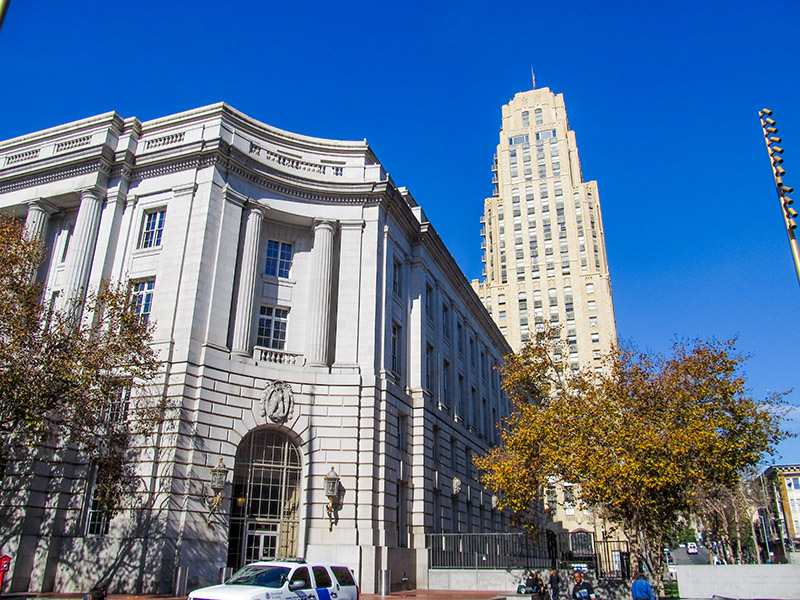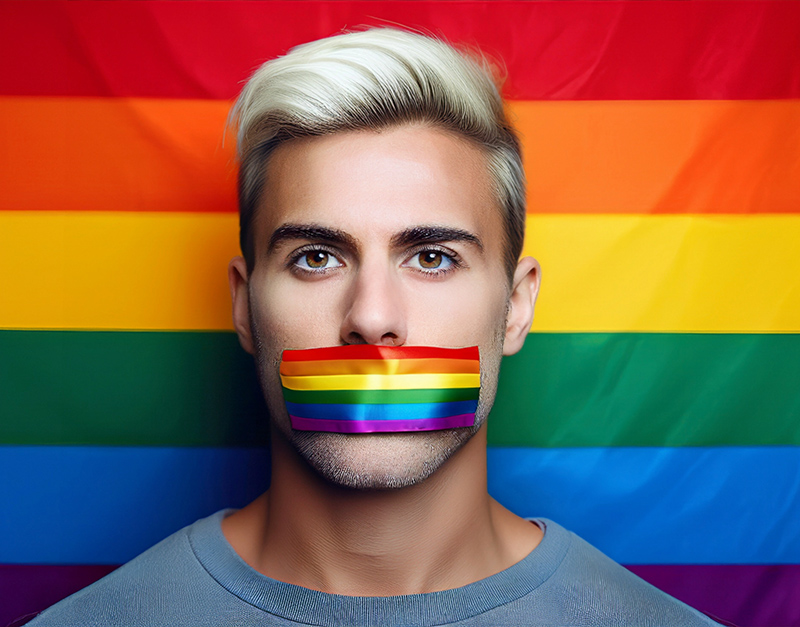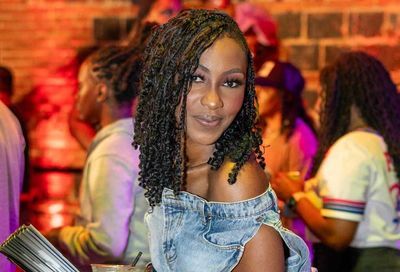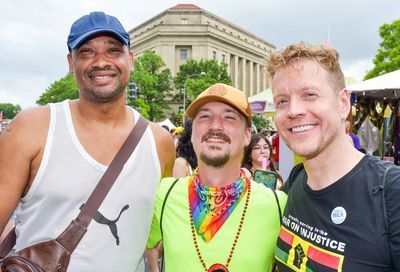Gay Penguin Book Authors Sue Over Ban
The authors of "And Tango Makes Three" argue that a Florida school district's book ban is unconstitutional.

A group of students and the authors of And Tango Makes Three, a story about two male penguins raising a chick, are suing the Lake County school district in Florida over the book’s removal from libraries.
Published in 2005, the award-winning And Tango Makes Three is based on the true story of Roy and Silo, a pair of male penguins at the Central Park Zoo, who helped protect and hatch an egg and raised the penguin chick, Tango, that emerged from it.
Authors Justin Richardson and Peter Parnell were inspired to write the book after hearing about how Roy and Silo were “completely devoted to each other,” according to a New York Times article.
While the book is geared towards 4- to 8-year-olds and does not contain sexually explicit content, Florida school district authorities banned the book. They removed it from school library shelves, citing Florida’s “Parental Rights in Education” law, also known as the “Don’t Say Law.”
Under the law, which is intended to allow parents to have a greater say over the content of their classroom lessons, teachers in public schools are barred from providing classroom “instruction” — which is vaguely defined — on sexual orientation and gender identity.
“We removed access to And Tango Makes Three for our kindergarten through third-grade students in alignment with Florida House Bill 1557, which at the time prohibited classroom instruction on sexual orientation or gender identity for those grade levels,” Sherri Owens, a spokesperson for Lake County Schools, told the Times in an email.
Parnell and Richardson and the parents of five school-age students subsequently sued to challenge the county’s ban on Tango.
In the lawsuit, filed in U.S. District Court for the Middle District of Florida, the plaintiffs claim that the book ban violates the First Amendment rights of both the authors and children who wish to read the book.
“By discriminating based on content and viewpoint, it infringes the author’s right to freedom of expression,” the suit says. “By restricting access to a book, which was previously freely available, for narrowly partisan and political reasons, it infringes students’ right to receive information.”
The lawsuit argues that the Lake County School District “cited no legitimate pedagogical reason for its decision.”
“The book is factually accurate, non-vulgar and non-obscene; Tango had previously stood on school library shelves; and Tango was restricted for illegitimate, narrowly partisan and political reasons,” the lawsuit argues.
“Because Tango’s restriction in Lake County was specifically motivated and justified by the specter of enforcement of the vague and discriminatory H.B 1557, that statute is unconstitutional as applied to these facts.”
The suit further argues that the ban violates the rights of one of the student plaintiffs, a first-grader, who is in the process of being adopted and who lives in a household with a nontraditional family structure, by restricting his right to information.
That student, referred to as D.S. in the lawsuit, is primarily motivated to read Tango due to his fascination with animals and his desire to become an “animal doctor” when he grows up, but is also interested in learning about different family structures, including families with adopted children, whose experiences might be similar to his own.
Tango is “a true and heartwarming story, and it teaches students about animal behavior, adoption, diversity among family structures, and responsible family values” the plaintiffs argue in the lawsuit. “The authors wrote Tango to spread a message of tolerance and equal treatment.”
“They have a sincere and strongly held desire to ensure that Tango is available to children learning about animal behavior, adoption, and family structures, whether similar to or different from their own – and the student plaintiffs wish to read Tango to learn about those very subjects.”
The lawsuit asks that Tango be reintroduced to Lake County public school libraries to allow students to access the book. It also asks that the court find the overall “Don’t Say Gay” law unconstitutional on the basis that its restrictions are “vague and/or overbroad.”
Parnell and Richardson said in a joint statement that they sued Lake County Schools “to affirm the American principle that no child should be denied access to age-appropriate information in school because of the beliefs and biases of some; to defend students’ right to read a heartwarming story of difference, acceptance, and love; and to protect authors from censorship rooted in intolerance.”
“Our book has been banned because Tango has two dads,” said Richardson.
The authors argue Tango is no less age-appropriate than Make Way for Ducklings, a classic children’s book showing a mother duck and father duck looking for a place to nest.
“Both show water birds becoming parents and caring for their young,” Richardson told The New York Times. “There is no sexual implication or language in either — but only one has been banned.
“Whatever one believes about the value of respecting two-mom or two-dad families. There is no substance to any claim that it’s harmful or inappropriate at any age for children to learn that we exist,” he added.
“[‘Don’t Say Gay’] permits, and frankly encourages, viewpoint discrimination, and that’s exactly what happened in its application,” said Faith E. Gay, a lawyer with Selendy Gay Elsberg, the firm representing the plaintiffs. “Nothing could be more overreaching than to sweep up a book like Tango.”
Lake County has restricted access to 40 titles, most of which deal with LGBTQ subjects, according to the Times.
Elsewhere in Florida, Tango has been banned for “serving an ‘LGBTQ agenda using penguins,’” as alleged by a high school language arts teacher in Escambia County, in Northwest Florida, who has challenged more than 100 books with the intent of having them removed from shelves. According to the Times, the teacher in question flagged the books due to her personal objections to their alleged “explicit sexual content, graphic language, themes, vulgarity and political pushes.”
The free speech organization PEN America and Penguin Random House have since filed a lawsuit challenging Escambia County’s attempts to remove or ban books “written by nonwhite or LGBTQ authors that address themes of race, racism, gender, and sexuality.”
Currently, school districts throughout the country are mired in controversy over education, as conservative parents have challenged books and school curricula they believe to be inappropriate, morally objectionable, or pushing a political agenda.
Earlier this month, Illinois became the first state to outlaw book bans after Democratic Gov. J.B. Pritzker signed a bill into law prohibiting such restrictions. According to CNN, Pritzker justified signing the bill into law, declaring, “Book bans are about censorship, marginalizing people, marginalizing ideas and facts. Regimes ban books, not democracies.”
Recently, a group of librarians, booksellers, and publishers sued the state of Arkansas over a new law that could potentially send librarians and booksellers to prison for selling materials “some might find objectionable,” according to The New York Times.
Meanwhile, in Llano, Texas, the Association of American Publishers, and other free speech advocates sued the county over a ban on more than a dozen books dealing with LGBTQ issues, race, or racism, or that were written by LGBTQ or non-white authors.
A federal judge ruled in favor of those challenging the restrictions, and ordered the books to be returned to the shelves, but Texas authorities have since appealed that decision to the 5th U.S. Circuit Court of Appeals.
Support Metro Weekly’s Journalism
These are challenging times for news organizations. And yet it’s crucial we stay active and provide vital resources and information to both our local readers and the world. So won’t you please take a moment and consider supporting Metro Weekly with a membership? For as little as $5 a month, you can help ensure Metro Weekly magazine and MetroWeekly.com remain free, viable resources as we provide the best, most diverse, culturally-resonant LGBTQ coverage in both the D.C. region and around the world. Memberships come with exclusive perks and discounts, your own personal digital delivery of each week’s magazine (and an archive), access to our Member's Lounge when it launches this fall, and exclusive members-only items like Metro Weekly Membership Mugs and Tote Bags! Check out all our membership levels here and please join us today!































You must be logged in to post a comment.